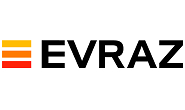Market Segment

June 1, 2021
Rail, Pipe Could See Biggest Impact from Evraz Explosion: USW Official
Written by Michael Cowden
An explosion over the weekend at Evraz North America’s steel mill in Pueblo, Colo., injured eight people, three of them critically, a union official told Steel Market Update.
The resulting damage will disrupt production at the mill given that its electric arc furnace (EAF) feeds three downstream operations, some of which do not have an external source of semifinished goods, United Steelworkers (USW) union Local 2102 President Eric Ludwig said. Local 2102 represents workers at the Pueblo steel mill, which makes rail, seamless pipe, and wire rod and coiled reinforcing bar.
![]() Evraz did not respond to requests for comment for this article.
Evraz did not respond to requests for comment for this article.
Of the eight people injured in the blast, six were union members and two were management. Five have been treated for their injuries and released from the hospital, Ludwig said. Of the three people still in hospital, two were in the ICU at Parkview Medical Center in Pueblo, and one had been taken to a burn unit in Denver, more than 100 miles away. “We’re concerned about getting the three still in the hospital healed, out and moving forward,” he said.
The Blast
The explosion happened on Saturday, May 29, between 5-5:30 p.m. local time. It occurred because a water panel split above the tap hole of the mill’s EAF, allowing water to get into the molten steel, which caused the blast, Ludwig said.
Additional detail was not available pending an investigation into the explosion. The USW and Evraz are holdings meetings on Tuesday, June 1, to determine a timeline for how long the furnace will be down and when production might be restored, he said.
The Pueblo EAF has capacity of 1.1 million tons per year, according to the Association for Iron & Steel Technology’s 2021 Directory of Iron and Steel Plants.
That single EAF feeds the rail, seamless pipe, and rod and bar mills at Pueblo. Evraz can purchase billets from an outside source to keep rod and bar operations running. But the rail and seamless pipe facilities do not have that option, Ludwig said.
“The extent of the impact depends on how much stock is on the ground,” he said. “They will definitely be impacted. … Rail and seamless pipe, once they are out (of floor stock), they’re out.”
The Pueblo rail mill has annual capacity of 700,000 tons per year. The bar mill sports capacity of 415,000 tons per year. And the seamless pipe mill has annual capacity of 135,000 tons per year, per the AIST directory.
The seamless pipe mill makes casing, a kind of oil country tubular good (OCTG).
Steel Market Update does not report prices for long products or energy tubulars. But steel prices in general continue to break new all-time highs from one week to the next.
By Michael Cowden, Michael@SteelMarketUpdate.com







